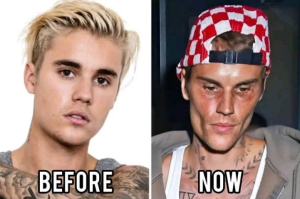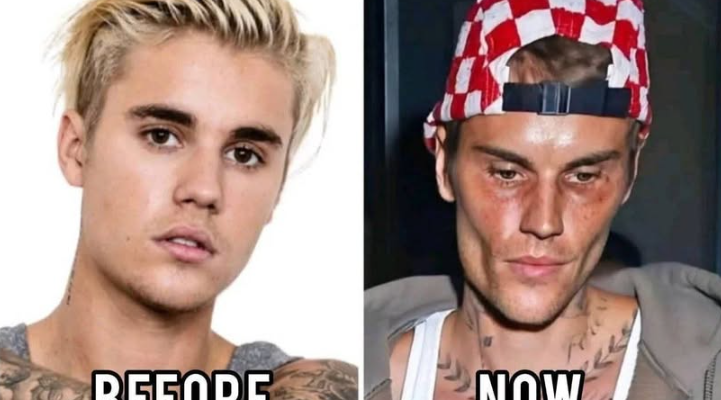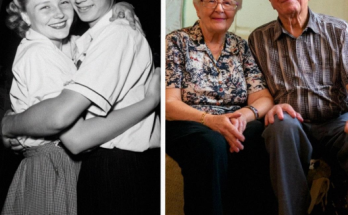In February 2022, Justin Bieber, the Canadian pop superstar known worldwide for hits like “Baby,” “Peaches,” and “Sorry,” announced that he had tested positive for COVID-19. The news came as a shock to fans and the music industry alike, as Bieber was in the midst of his highly anticipated Justice World Tour. The diagnosis forced him to postpone his scheduled Las Vegas concert on February 20, 2022, a disruption that highlighted the ongoing vulnerability of even high-profile celebrities to the coronavirus pandemic. His team promptly confirmed the diagnosis to ABC News, assuring fans that the concert would be rescheduled and that original tickets would remain valid for the new date, set for June 28, 2022. This announcement provided some relief to fans who had been eagerly anticipating the show, though disappointment was inevitable given the circumstances.
The Justice World Tour itself was a major undertaking for Bieber, designed to promote his sixth studio album, “Justice,” which had garnered widespread acclaim and commercial success. The tour began on February 18, 2022, in San Diego, California, and was slated to conclude in September of the same year. The timing of Bieber’s COVID-19 diagnosis was particularly challenging, as it came only two days after the tour’s opening performance. The singer, who had already faced significant scrutiny and pressures from the media and fans, now had to contend with the added challenges of illness while maintaining his commitments to live performances.
Bieber’s positive COVID-19 test was one of several health-related challenges he had faced in recent years. Notably, he had been diagnosed with Ramsay Hunt syndrome type 2 in June 2022, just a few months later, which caused partial facial paralysis and significantly impacted his ability to perform. The combination of the COVID-19 diagnosis and Ramsay Hunt syndrome forced Bieber to temporarily pause the tour. While he made a comeback to performing in July 2022, the lingering effects of these health challenges, along with other ongoing medical concerns, ultimately led to the cancellation of the remaining tour dates in early 2023. This decision reflected a growing awareness within the entertainment industry about the importance of prioritizing health and well-being over professional obligations, even for global superstars.
Justin Bieber’s openness about his health struggles has been a defining feature of his public persona in recent years. In addition to his physical health challenges, he has also spoken candidly about his mental health, including experiences with depression, anxiety, and the pressures of fame. Bieber has openly discussed previous diagnoses such as Lyme disease and infectious mononucleosis, providing fans with a window into the complex interplay between his physical health, mental wellness, and professional responsibilities. By sharing these struggles, Bieber has helped spark broader conversations about health, vulnerability, and resilience, encouraging fans to view celebrities as human beings who face challenges similar to their own.
The impact of Bieber’s COVID-19 diagnosis extended beyond the individual level, affecting the logistics and planning of his tour. Concert promoters and venues had to adjust schedules, inform ticket holders, and implement health and safety measures to ensure that rescheduled events could proceed safely. This disruption highlighted the continued influence of the COVID-19 pandemic on live entertainment, even as vaccination rates increased and public health measures evolved. Fans were reminded that the pandemic remained a relevant concern, capable of affecting large-scale events and high-profile figures alike.
Bieber’s diagnosis also illustrated the broader challenges faced by touring musicians during a global health crisis. Unlike studio recordings or digital releases, live performances involve close interaction with large audiences, travel, and a physically demanding schedule. Contractual obligations, logistical considerations, and financial stakes add complexity to managing illness while on tour. For Bieber, postponing and ultimately canceling shows was likely a difficult decision, balancing the expectations of fans, financial considerations, and the need for rest and recovery. The situation underscored the human cost of the entertainment industry’s demands and the importance of flexibility and empathy when unforeseen circumstances arise.
Fans and the media responded to Bieber’s COVID-19 diagnosis with concern and support. Social media platforms were filled with messages wishing him a speedy recovery, reflecting the strong connection between Bieber and his fanbase. This support network has been a consistent feature of his career, with fans often rallying behind him during challenging moments. The public attention also served to reinforce the significance of responsible health practices, such as testing, isolation, and following medical guidance, particularly for individuals in high-contact professions.
In addition to the immediate implications for Bieber’s tour, his diagnosis contributed to the ongoing discourse about celebrity health and public awareness during the pandemic. As one of the most recognized musicians in the world, Bieber’s experience highlighted that COVID-19 does not discriminate based on fame, wealth, or social status. His openness about testing positive and sharing updates about his recovery provided a relatable narrative for many, emphasizing the need for caution and adherence to health protocols in everyday life.
Bieber’s experience with COVID-19 was only one chapter in a series of health challenges that he has faced, yet it was a particularly public one due to the timing and the impact on his tour. Despite these setbacks, Bieber has consistently demonstrated resilience, returning to performance and continuing to engage with his fans through social media, interviews, and music releases. His willingness to discuss health issues candidly has contributed to reducing stigma around both physical and mental health challenges, inspiring others to prioritize their well-being without fear of judgment.
Ultimately, Justin Bieber’s COVID-19 diagnosis in February 2022 was more than just a news story; it was a moment that underscored the vulnerability, humanity, and resilience of a global pop icon. It disrupted his Justice World Tour, required adjustments in scheduling, and brought attention to the ongoing impact of the pandemic on the entertainment industry. More importantly, it demonstrated Bieber’s commitment to transparency, self-care, and prioritizing health over professional obligations. By sharing his experiences, he has not only educated fans about the realities of COVID-19 and other health challenges but also reinforced the importance of empathy, understanding, and support in times of adversity.
As of today, Bieber continues to recover and focus on both his personal health and his musical career. The lessons learned from this period—about resilience, self-care, and the importance of a supportive community—remain relevant for both fans and the broader public. While the pandemic has created unprecedented challenges for artists and audiences alike, Bieber’s experience serves as a reminder that prioritizing well-being is essential, even amid global fame and professional demands. Through openness and honesty, Justin Bieber has transformed a personal health challenge into an opportunity for dialogue, awareness, and inspiration, leaving a lasting impact on the music industry and those who follow his journey.

